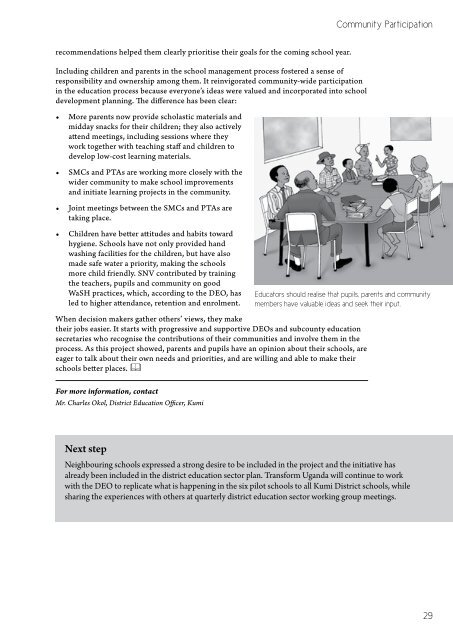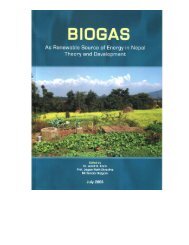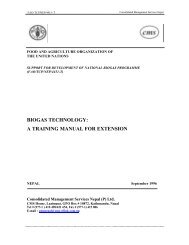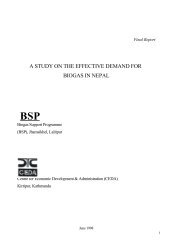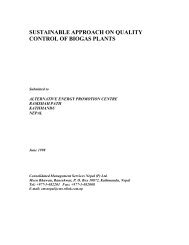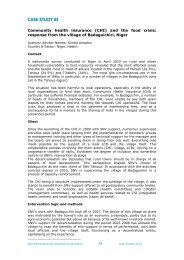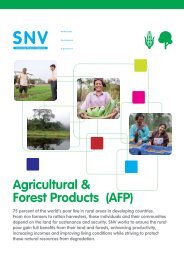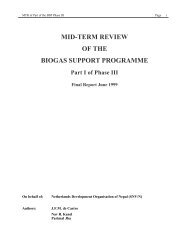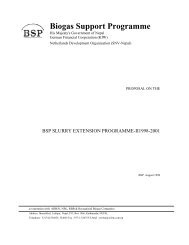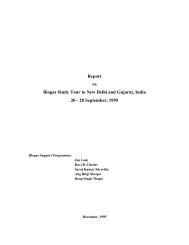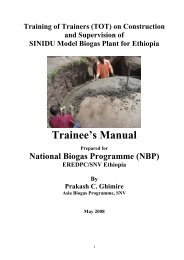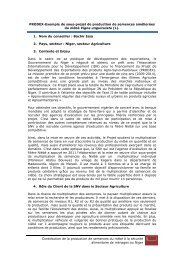School Priorities - SNV
School Priorities - SNV
School Priorities - SNV
You also want an ePaper? Increase the reach of your titles
YUMPU automatically turns print PDFs into web optimized ePapers that Google loves.
Community Participation<br />
recommendations helped them clearly prioritise their goals for the coming school year.<br />
Including children and parents in the school management process fostered a sense of<br />
responsibility and ownership among them. It reinvigorated community-wide participation<br />
in the education process because everyone’s ideas were valued and incorporated into school<br />
development planning. The difference has been clear:<br />
• More parents now provide scholastic materials and<br />
midday snacks for their children; they also actively<br />
attend meetings, including sessions where they<br />
work together with teaching staff and children to<br />
develop low-cost learning materials.<br />
• SMCs and PTAs are working more closely with the<br />
wider community to make school improvements<br />
and initiate learning projects in the community.<br />
• Joint meetings between the SMCs and PTAs are<br />
taking place.<br />
• Children have better attitudes and habits toward<br />
hygiene. <strong>School</strong>s have not only provided hand<br />
washing facilities for the children, but have also<br />
made safe water a priority, making the schools<br />
more child friendly. <strong>SNV</strong> contributed by training<br />
the teachers, pupils and community on good<br />
WaSH practices, which, according to the DEO, has<br />
led to higher attendance, retention and enrolment.<br />
Educators should realise that pupils, parents and community<br />
members have valuable ideas and seek their input.<br />
When decision makers gather others’ views, they make<br />
their jobs easier. It starts with progressive and supportive DEOs and subcounty education<br />
secretaries who recognise the contributions of their communities and involve them in the<br />
process. As this project showed, parents and pupils have an opinion about their schools, are<br />
eager to talk about their own needs and priorities, and are willing and able to make their<br />
schools better places. <br />
For more information, contact<br />
Mr. Charles Okol, District Education Officer, Kumi<br />
Next step<br />
Neighbouring schools expressed a strong desire to be included in the project and the initiative has<br />
already been included in the district education sector plan. Transform Uganda will continue to work<br />
with the DEO to replicate what is happening in the six pilot schools to all Kumi District schools, while<br />
sharing the experiences with others at quarterly district education sector working group meetings.<br />
29


